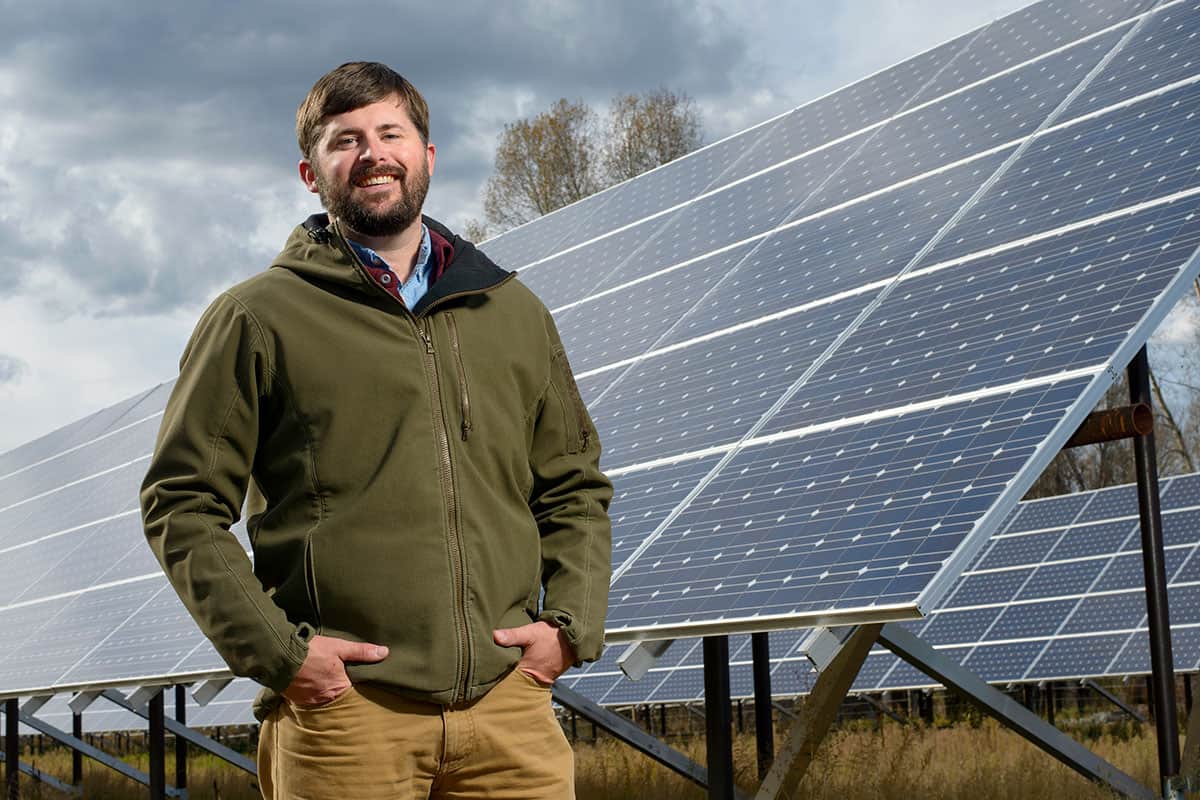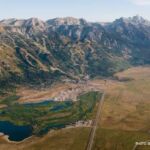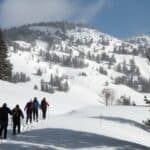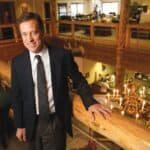Read The
Current Issue
Phil Cameron
Meet the Locals
Interview By mark huffman

Phil Cameron didn’t come here to tell people to turn off lights. (Like most, he came for a season after college—in his case, to be a fishing guide.) Thirteen years later, he finds himself talking lights, though. The Ohio native, who has a geology degree from Amherst College, spent nearly six years as a guide, environmental educator, and resource manager before he got into working to reshape the way the community looks at and uses energy. Today, he’s the executive director of Energy Conservation Works (ECW), a Town of Jackson/Teton County/Lower Valley Energy (LVE) program that pushes and provides funding so that people “can make more efficient and sustainable energy choices,” says Cameron, thirty-five. With LVE, ECW gives valley homeowners and businesses LED “starter kits” for free. Kits contain an assortment of LED light bulbs. ECW also worked to install new lights for night skiing at Snow King. These lights cut electricity consumption by 40 percent while better illuminating the slopes and sending less light pollution into the sky.
Q: Why Jackson Hole?
A: I first came during college to drop off a friend. I went on to a summer geology project near Red Lodge [Montana]. A year after that, I came here to work as a fishing guide. Later, I completed graduate work and taught field science courses at Teton Science Schools. It’s an unparalleled place to teach about the natural world.
Q: Fishing guide to energy guru seems like a leap. How’d that happen?
A: I’ve always been a great one for asking questions—so my parents tell me—and I thrive on new challenges and have a knack for reading my way into new skills.
Q: And what about a knack for telling people what to do, even if it’s in the best interest of the planet?
A: Most people are interested to better understand the issue of energy conservation. Very few people choose to be willfully wasteful. We help them improve the comfort and value of their home while saving on their utility bill. I haven’t met anyone yet who’s not interested in one or all of those things.
Q: Do you ever feel like a bossy pants?
A: No. The way I look at it, we’re connecting people with resources and information that can influence their decisions. They make the decisions. It’s not like we’re asking people to make huge sacrifices. We provide ideas for reasonable things they can undertake.
Q: Such as?
A: The cheapest thing is changing your behavior. Turn off the lights. If you turn your thermostat down 10 to 15 degrees for eight hours while you sleep, you can save 5 to 15 percent a year on your heating bill. That’s from the Department of Energy. If you live here, a home energy audit through LVE helps you understand your baseline energy usage.
Q: How energy-efficient is your own house?
A: My wife, Robin, and I recently moved into a single-family home. One of the first things I did was to understand its energy use. Then we started making changes like upgrading to a Wi-Fi thermostat. I signed up to receive LED light bulbs to turn every bulb in it to LED. We updated appliances to be Energy Star-rated, which made them eligible for rebates. We’re looking at adding insulation to the attic and the crawl space and at installing solar panels.
Q: What about outside your home?
A: We have a little person (toddler son Dylan) to tote around, but we still have a fairly compact footprint. We have six bikes to our two cars.
Q: Will you share any of your favorite spots to fish?
A: Fishing for brown trout in the Lewis Channel in Yellowstone in the fall. It is quiet and isolated.




